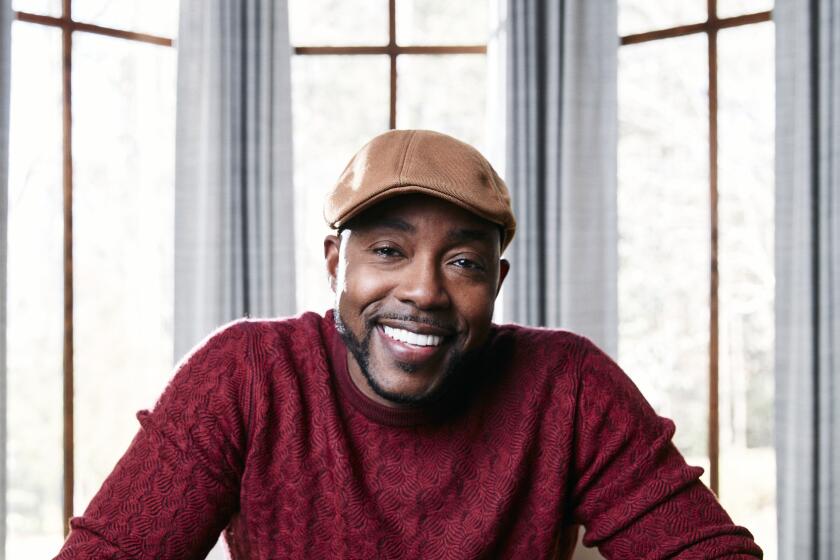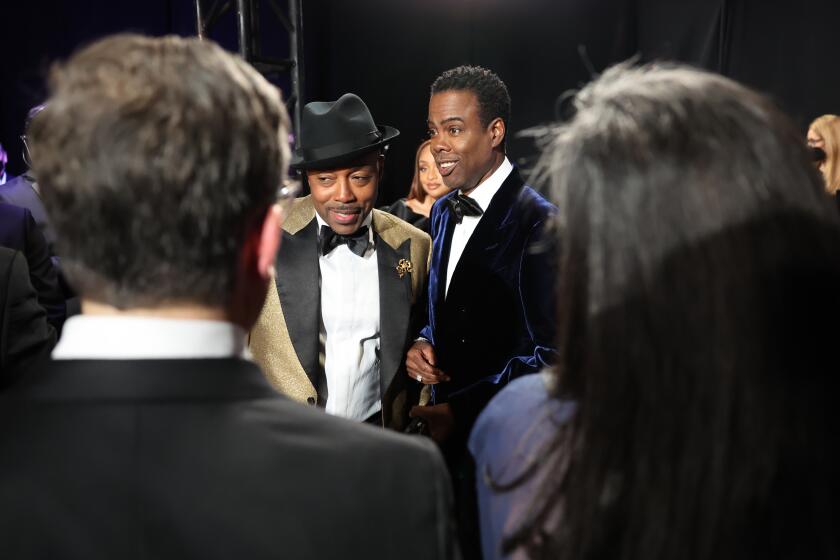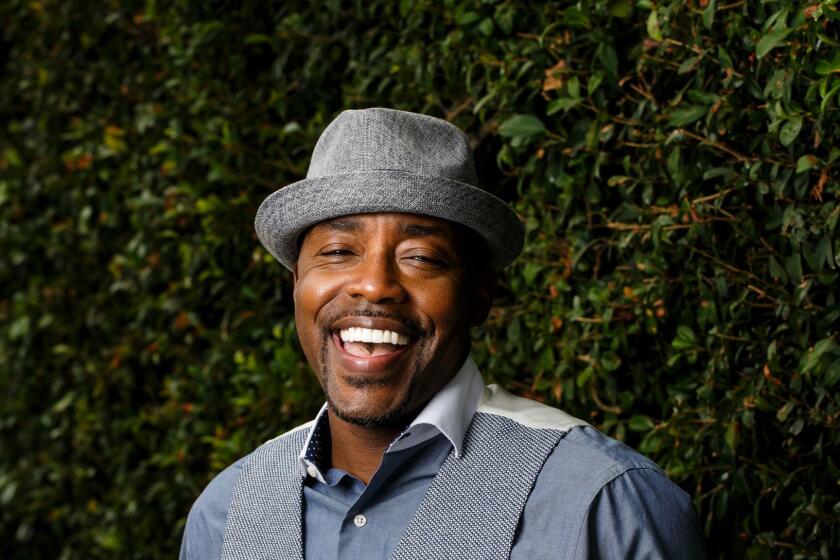‘Fight Night’ producer Will Packer says he’s ‘living proof’ that diverse content is good business

- Share via
Will Packer knows that diversity in movies is good business.
The producer has become a standout in Hollywood, making films with mostly Black casts that cater to an underserved audience — and that audience has rewarded him for it. His 2017 film “Girls Trip,” starring Tiffany Haddish, Regina Hall, Queen Latifah and Jada Pinkett Smith, was the highest-grossing comedy of that year. Comedies “Think Like a Man” and “Ride Along” have seen massive success at the box office.
He’s since branched out into projects for streaming, documentary features and television (both scripted and unscripted), diversifying his slate at a time when the industry is seeing upheaval in its business model. His next project is “Fight Night,” a true-story limited series for Peacock that chronicles the biggest heist in the state of Georgia’s history, starring Kevin Hart, Samuel L. Jackson and Taraji P. Henson. But Hollywood’s current contraction shouldn’t mean that diverse projects should be abandoned in favor of the bottom line, he said.
“It takes folks pushing the industry to see the economic benefit of doing organically diverse content,” Packer said. “And I like to think that I’m one of the people that is doing the pushing.”
As the Oscars hope to stem a ratings slide, producer Will Packer discusses the controversy over this year’s changes to the show and what viewers can expect.
This year is the 10th anniversary of Will Packer Productions. What are you most proud of?
Sustainability and longevity in the context of a very fickle industry where not a lot of companies last that long. As the ever-changing industry has continued to shift, we have somehow been able to stay relevant and valuable to our media partners and to audiences, which is most important.
What has helped you stay relevant?
I like to think it’s because two of the things that I really try to focus on are commerciality and authenticity. We focus on things that will be appealing to our core audience and do it at a time when we realize they don’t have to consume your stuff.
It’s laughable to me how self-important as an industry we can be. And I have peers who think that if you build it, they will come. And it’s like no, not at all. Not when you’re in an oversaturated environment. Audiences want something that they can’t get elsewhere that feels urgent, that’s loud, provocative, oftentimes — something that’s going to speak to them.
First-time Oscars producer Will Packer tells ‘Good Morning America’ he wasn’t worried about Will Smith until he started yelling ‘with such vitriol.’
What more needs to be done to diversify Hollywood?
You know, I’m an eternal optimist. There definitely has been progress — you look at the voices in front of and behind the camera, and they’re more diverse than ever before. But we started from where there was such a dearth of any kind of real, authentic diversity, we have so far to go. Even though I’m optimistic, I don’t have any delusions of thinking that we’ve turned some incredible corner. If anything, when you have a constriction of content now, studios pulling back, the first things that get cut are things that are considered, you know, diversity initiatives.
I’m living proof that diverse content is good business. Unfortunately, we’re seeing it become tougher for diverse filmmakers, because it’s tougher for all filmmakers, but it always hits the marginalized voices first and hardest. And we’re seeing it now.
What projects are you excited about?
I’m on my way to set right this very minute on a project I’m very excited about called “Fight Night.” It is a limited series that I’m doing for Peacock. It is a true story based on the biggest heist in Georgia’s history, and one of the biggest heists in the country, actually. It happened after a Muhammad Ali fight back in 1970 when he couldn’t get sanctioned to fight anywhere; he’d been blackballed because of his stance against the Vietnam War. An interesting collection of white government officials, Black entrepreneurs, promoters and, frankly, out-and-out hustlers came together to put together this unsanctioned boxing match. And afterward, there was this underground casino party that attracted celebrities, athletes, entertainers and gangsters from all over the country. And that party got robbed. We’re telling the true story of that night.
In the run-up to his latest movie “Girls Trip,” producer Will Packer didn’t rely on massive billboard campaigns in Los Angeles and New York.
Rapid-fire questions
What are you listening to now?
I’m listening to an audiobook called “Tools of Titans.” Music-wise, I’ve been listening to the Kendrick-Drake tracks. When I work out, that’s good energy. And then earlier this year, I went to Trinidad for Carnival, so I’ve been playing soca since then.
How do you get focused?
Focus has never been a big problem for me. I can’t afford to not be focused. So, I am somebody that always has a million things going on, but I’m a very good compartmentalizer.
What do you do to relax?
Sit on the beach. I’m an amateur boater; I love to go out and be near the water. That’s where my soul kind of finds peace, that’s where I can unplug.
More to Read
Inside the business of entertainment
The Wide Shot brings you news, analysis and insights on everything from streaming wars to production — and what it all means for the future.
You may occasionally receive promotional content from the Los Angeles Times.














